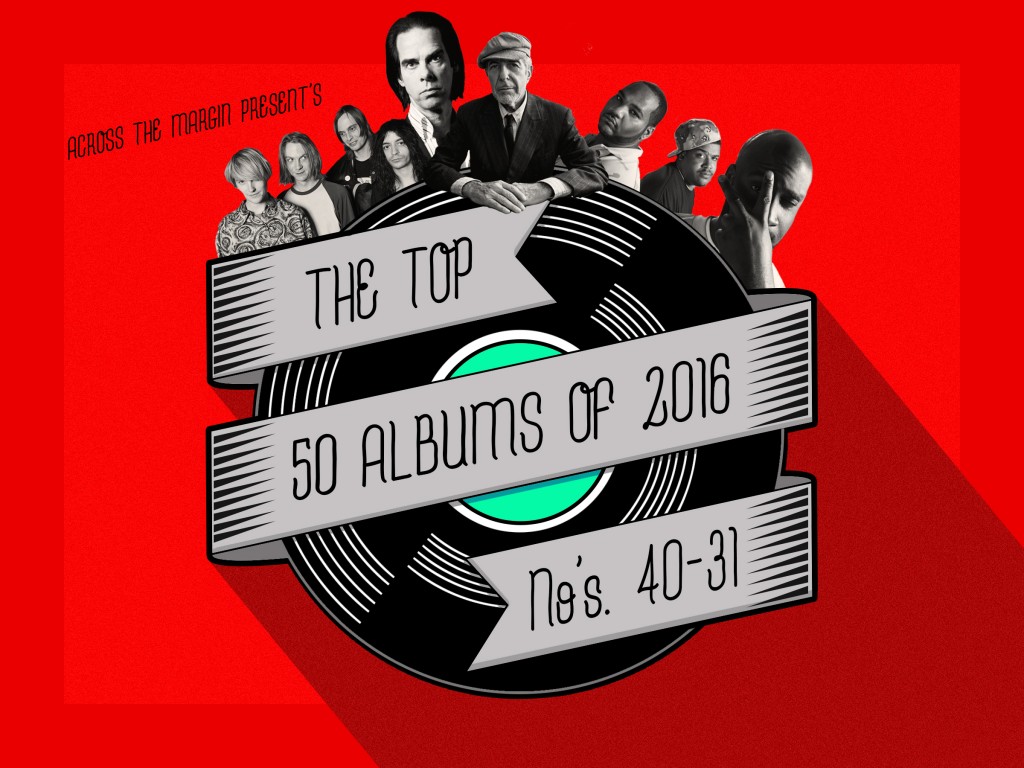Twenty years after its release, Black Star’s album, Mos Def & Talib Kweli are Black Star, still reigns supreme as the perfect union between socially conscious rap and jaw-dropping lyricism…

by: Michael Shields
On September 29th, 1998, one of the most important and impressive albums in the history of hip-hop was released. This album, entitled Mos Def & Talib Are Black Star, featured a coupling of two exceptionally talented, and socially conscious, rappers in Mos Def (who now goes by the name Yasiin Bey) and Talib Kweli. In an era when shiny suit rappers and flossin’ emcees held the rap game firmly in its grip, the teaming of Mos and Talib amounted to an enlightened and revolutionary alternative to the stylings of the day. For Black Star ((The title Black Star is a reference to the Black Star Line, a shipping line founded by Pan-Africanist Marcus Garvey who fought for the rights of blacks all around the world throughout the first half of the 20th century.)) was not only a deeply sophisticated piece of art, but also a thoughtful examination and celebration of Black and hip-hop culture, and one of the most remarkable albums released amid this or any era.
Released by the famed underground record label Rawkus, it is fascinating to consider that this album could easily have never been birthed in the first place. Both Mos Def and Talib Kweli were eager up-and-comers in the late ’90s, duly respected in the game but neither artist had released a full-length album. The initial plan was for each of them to release their own album on Rawkus, an arrangement that fortuitously never came to fruition when Mos and Talib came to a full understanding of the astounding chemistry they shared. And so, deciding upon a collaborative album first, Black Star was conceived — a deeply inspiring album with unfathomable depth that stated emphatically that Black is beautiful. That life and love is beautiful. That shrewd, pointed lyricism is beautiful. And that hip-hop is beautiful.
Black Star was a meticulously crafted album. With sparse yet purposeful and stunning production by the likes of Hi-Tek, J. Rawls, Ge-ology, Shawn J. Period, 88-Keys, and Da Beatminerz, and employing samples from soul and jazz poet Gil-Scott Heron, jazz alto saxophonist Cannonball Adderley, and soul singer Minnie Riperton (to name a few!), Black Star was a collaborative masterpiece. Black Star was also Brooklyn, New York through and through, a musical extension of the place that Mos and Talib called home. Vulnerable, yet bold and broadening, Black Star shined a light on crucial problems facing the Black community and hip-hop in the 1990s. It confronted materialism, the dangers of life in America for those with dark skin, and the fallacy of the American dream. Remarkably, all these serious topics were triumphantly addressed with penetrating insight due to the prodigious talents of Mos and Talib, who made a mark in hip-hop that will never be erased with the release of an album that still awes with each and every spin, even twenty years after its release.
Black Star commences with an intro that features a male announcer laying the groundwork for what is to come, stating “We feel that we have a responsibility to…shine the light…into the darkness,” an apt foretelling of the positivity that will buoy the weighty street narratives and subject matters on the album. Following this insightful and telling remark, Mos describes himself and Talib as “real life documentarians,” a fitting description of the two storytellers who would be our hosts for the journey that is Black Star.
“Astronomy (8th Light),” Black Star’s opening track, seeks to answer the question: What is Black Star?, and proceeds to be an ode to all things Black. Amid the dexterous lyricism that comprises the song is the notable lyric “Black is the color of my true love’s hair” which is a nod to the a traditional folk song first known in the Appalachian Mountains region of the United States in 1915, famously sung by the great Nina Simone. It is moments like this, coupled with references to Public Enemy’s Fear of a Black Planet and John Coltrane’s love for his wife Naima Grubbs, dotted generously throughout the album, that highlight the depth and perspicaciousness of Mos and Talib. “Astronomy (8th Light)” serves as a prime example of the stunning lyricism employed throughout the album and of the positivity that defines the album exemplified in Talib’s impactful reminder to his community: “There’s so much to life when you just stay Black and die.”
In “Definition,” listeners are welcomed into Mos and Talib’s Brooklyn, “From where they sell they tree at / To where the police be at,” a place where “They paint murals of Biggie / In cash we trust, ’cause it’s ghetto fabulous, life look pretty / What a pity — blunts is still fifty cents, it’s intense.” “Definition,” too, acts as a triumphant ode to fallen emcees, specifically The Notorious B.I.G. and Tupac Shakur. A re-imagining of Boogie Down Productions’ anti-gun song “Stop the Violence“, “Definition” laments at the violence that pervades hip-hop while offering through the album an alternative to the sort of rap that is confrontational and danger-some.
“RE: DEFinition” picks up exactly where “Definition” left off, and displays Mos and Talib’s ability to spit battle raps with the best of them, but yet again the depth here is astounding. At one point in “Re:DEFinition,” Talib spits: “Still more Blacks is dying, cause they live and they trying / How to Make a Slave by Willie Lynch is still applying.” This is a reference to the alleged speech by Virginia slave owner William Lynch in the early 1700s that boasted that the secret to controlling Black slaves was to set them against one another. Talib is trumpeting plainly that this method is still very much in play which is an important and eye-opening warning to all.
“Children’s Story” is a repurposing of Slick Rick’s original version, in which Mos takes sharp aim at materialism in hip-hop while reminiscing about the good old days within the genre “When people wore Adidas and lived life slow / When laws were stern and justice stood / And people was behaving like hip-hop was good.” In it, Mos likens the greed involved in money chasing to a disease, and in no uncertain terms lays out the unforgiving endgame for those “Out chasing cream and the American dream (trying to pretend the ends justify the means),” wherein the rapper leaves us with one of the most poignant lines on the album: “Life is more than what your hands can grasp.”
“Brown Skin Lady” commences with a clip from the 1989 film Chameleon Street which examines the unique and disheartening conditioning that the African-American community has been menaced with for centuries (“even my conditioning has been conditioned”), so much so that European standards of beauty (light skin and straight hair) have appeal. But from there, “Brown Skin Lady” opens up into a celebration of beautiful brown skinned women everywhere. It opens with Talib wondering how women, in all too many cases, can be treated so poorly by men when most men have mothers, and from there Mos and Talib wax poetic about the Black goddesses they are fortunate to have had in their life. “Brown Skin Lady” is a song that could only be birthed by this talented and thoughtful duo, and for my money it is one of the most alluring and soul-soothing songs ever crafted.
“B Boys Will B Boys” is a tribute to all the rappers, djs, breakers, graffiti artists, dancers, hip-hop crews, and artists that have acted as the foundation upon which hip-hop was built. It is an homage to the greats, called out by name, that have paved the way for Mos and Talib, and a celebration of everything that makes hip-hop so special.
“K.O.S. (Determination),” featuring the sensuous crooning of Vinia Mojica, is one of the most positive hip-hop songs you will ever come upon. It touts a journey of lifelong self-education, finding a way to know and appreciate yourself and your origins, and of having love in your heart, even in the face of hate. “K.O.S. (Determination)” is rife with nuggets of profound insight at a level never seen before in hip-hop such as “At exactly which point do you start to realize / That (life without knowledge is death in disguise?) / That’s why, knowledge of self is like life after death / Apply it, to your life, let destiny manifest.” The song is a call to action that beckons one to greater heights, and to believe in yourself no matter what.
“Hater Players” has a harder edge than most tracks throughout Black Star, and the lyrical dexterity exhibited throughout it is flat out jaw-dropping. Talib’s first verse is a stunner, one where he slides in a clever nod to Gregory Isaacs’ “Night Nurse” and spits cutting lines like “I’m like shot clocks, interstate cops, and blood clots / My point is, your flow gets stopped! / By all means, you need more practice, take that ass home / Everybody lookin at you, fish tank syndrome.” Not to be outdone, Mos follows with an equally impressive verse, one where he offers a glimpse into his mind’s eye where “Visions occupy my synaptic space / Command and shape, to illustrate my mind’s landscape / The tallgrass, the low plains, the mountainous ridges / Thickets among the forests, rivers beneath the bridges.” “Hater Players” is, simply put, proof positive that Mos and Talib are two of the greatest rappers…period.
“Yo Yeah” is an interlude where “Black” is explored (“Black is serious, Black is a feeling / Black is us, the beautiful people”) and features poetic images of tribal African cleansing rituals and mythological ancestral spirits, namely the Nommo worshipped by the Dogon tribe of Mali. “Yo Yeah” is brief yet thought-invoking, and it provides for the perfect set-up to the unleashing of one of the greatest hip-hop songs of all time, “Respiration.”
It takes a great deal to stand out on an album so brimming with brilliant music, but “Respiration” does just that. Featuring a verse from Common Sense and three absolutely flawless verses in total, “Respiration” casts off with a clip from the 1983 hip-hop culture documentary Style Wars that sets the scene with a subway car plastered with graffiti, block lettering that reads “All You See Is…Crime In The City.” Following that, a sultry voice whispers “Escúchela, la ciudad respirando” three times, which means “Listen to it, the city is breathing.” It is within the extraordinarily crafted bars of “Respiration” where the city indeed breathes and exists, in all its grime and all its glory. A city Mos describes as “Draped in metal and fiber optics / Where mercenaries is paid to trade hot stock tips for profits / Thirsty criminals pick pockets / Hard knuckles on the second hands of working class watches / Skyscrapers is colossus, the cost of living is preposterous / Stay alive, you play or die, no options.” It’s a city where, as Talib explains, “We played against each other like puppets / Swearing you got pull when the only pull you got is the wool over your eyes / Getting knowledge in jail like a blessing in disguise / Look in the skies for God, what you see besides the smog / Is broken dreams flying away on the wings of the obscene.” And it is a city where Common suffered profound loss, “Yo, on The Amen Corner I stood lookin’ at my former hood / Felt the spirit in the wind, knew my friend was gone for good / Threw dirt on the casket, the hurt, I couldn’t mask it / Mixin’ down emotions, struggle I hadn’t mastered.” “Respiration” acts as both an ode to the offerings and the agonies of the city, but more than anything it presents the city as a living, breathing entity, something everyone who has ever felt the energy pervading from the concrete jungle knows all too well. “Respiration” is a work of brilliant art unto its own, a deep and well-crafted journey into the heart of the city.
“Thieves In The Night” was inspired by Toni Morrison’s novel The Bluest Eye, the chorus being a reimagining of one of the paragraphs in her book. Kweli describes in the album’s liner notes that the book “struck me as one of the truest critiques of our society, and I read that in high school when I was 15 years old. I think it is especially true in the world of hip-hop, because we get blinded by these illusions.” Once again, the depth of the lyricism is jarring, and “Thieves in The Night” displays a purity of vision for the duo, where riches and fame aren’t the endgame (“I don’t give a damn if any fan recall my legacy”), but rather poetic and spiritual abstraction (“I’m trying to live life in the sight of God’s memory”). The song acts as the crowning directive of a theme that flows through the entirety of the album, that one should always be themselves, uncompromising and unmitigatedly proud.
“Twice In A Lifetime” closes the album with a crew banger featuring Jane Doe, Wordsmith, and Punchline. It acts as a celebration of all that came before, and exists as one last hard-hitting track that accentuates the astonishing poetry that defines the album. “Twice In a Lifetime” is the cherry on top of a perfect and deeply-insightful album, a final throw-down before all was said and done on one of the most important hip-hop albums of all time.
The past few have months found Talib and Yasiin Bey touring in celebration of Black Star’s Black Star twentieth anniversary. Not only did they close down the Brooklyn hip-hop festival in July, but they co-headlined with Nas a concert in front of capacity crowd at Colorado’s famed Red Rocks Amphitheater. Amid the touring and the celebration of the album, rumors of another Black Star album in the works have surfaced, one that would conceivably be produced by the incomparable emcee and producer Madlib. At a show in Denver, Colorado earlier this year, Yasiin threw gasoline on the rumor mill fire exclaiming, “New Black Star with Madlib, Talib Kweli, Yasiin, coming soon!” But regardless of what is to come (fingers remain emphatically crossed), with just one album together, Yasiin and Talib blessed hip-hop with an unforgettable masterpiece whose thematics appear just as significant today as twenty years ago. Black Star represents a high water mark for socially conscious rap, and an album that sets the bar for hip-hop duos forevermore.





